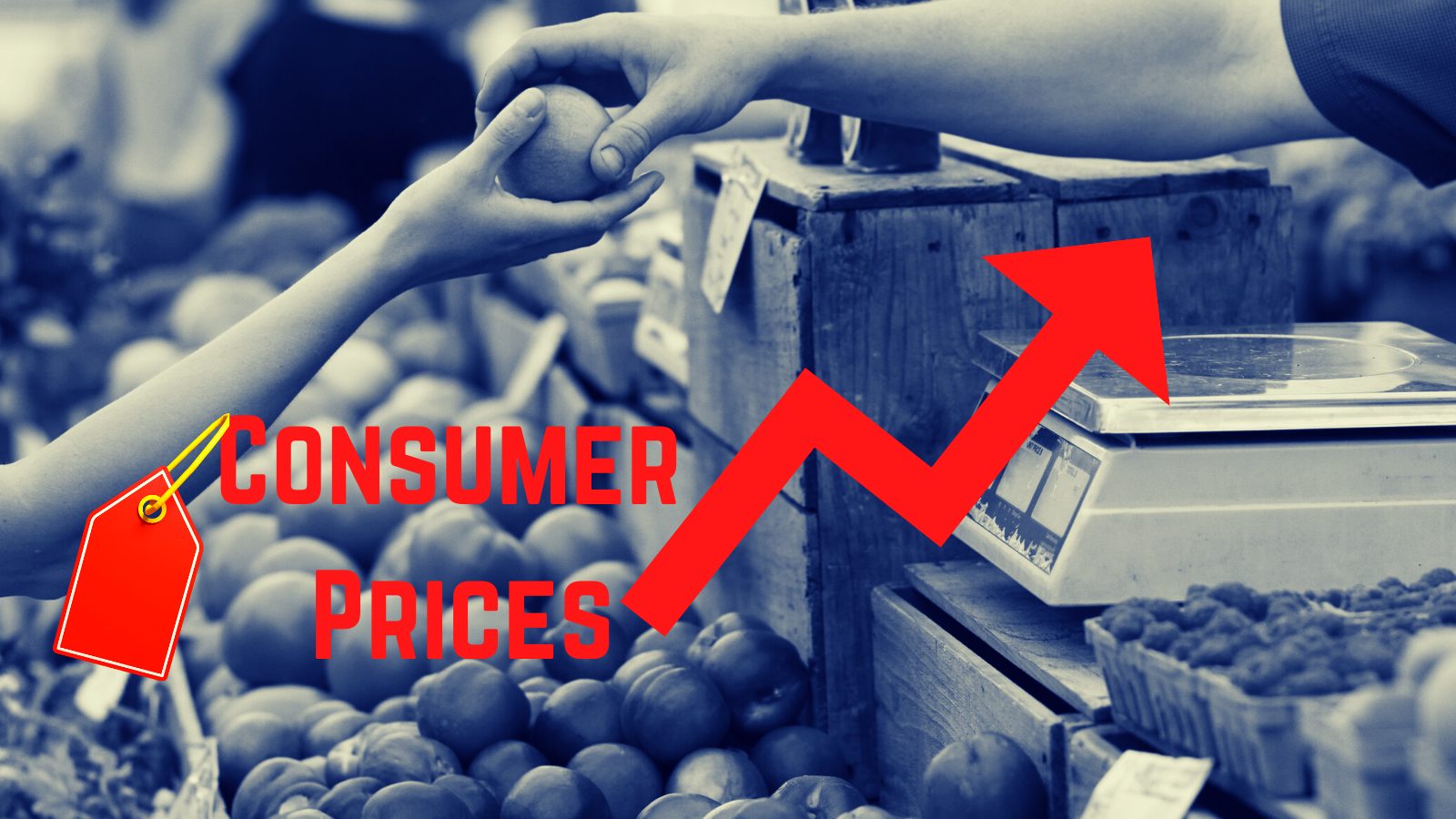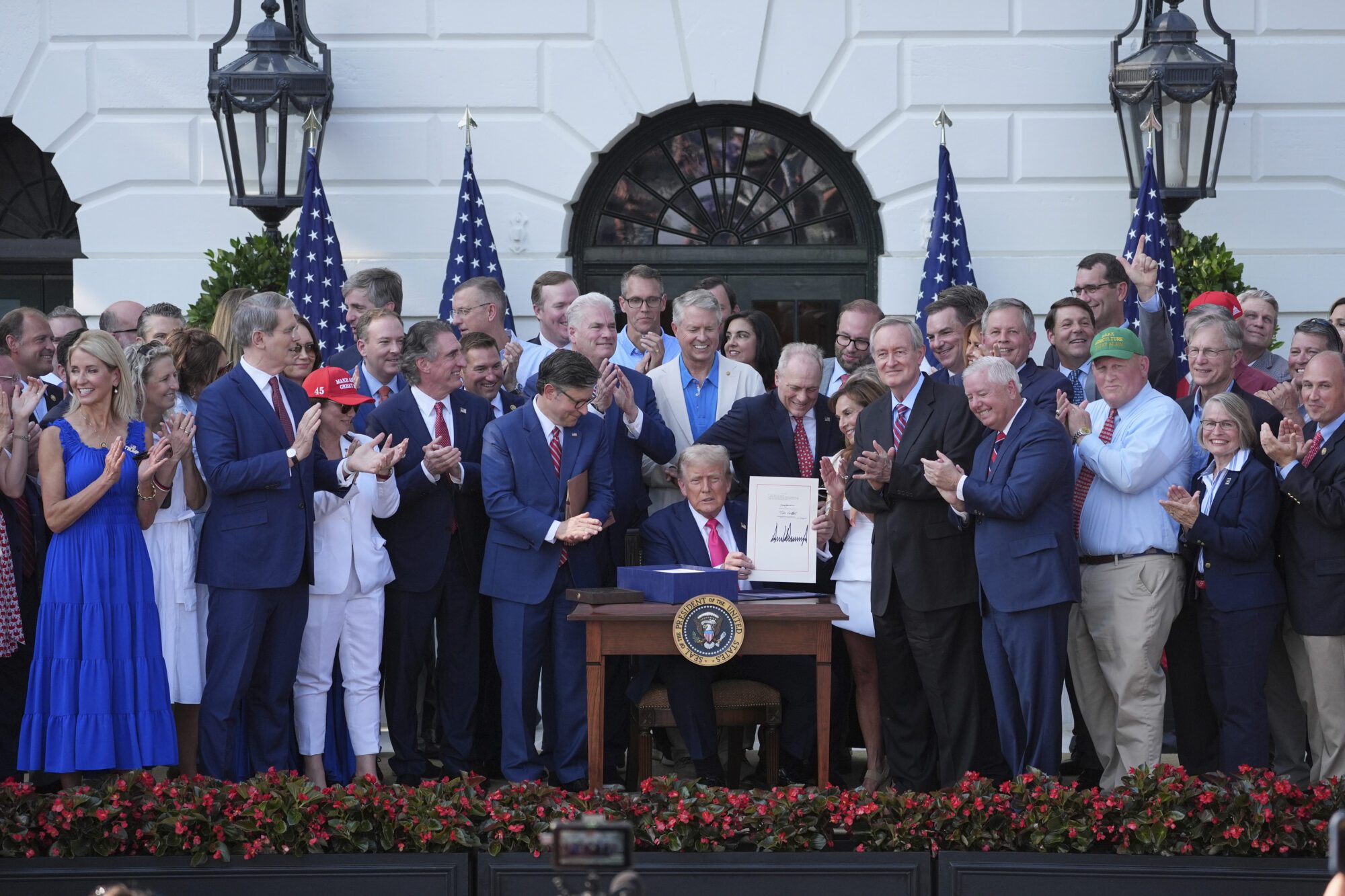
Mississippians, like the rest of America, will feel the pain in their pocketbooks as neither the Biden White House nor Russia plan to reverse course.
As nations grapple with how to respond to Russia’s unprovoked war on Ukraine, the general consensus has been to impose economic sanctions aimed at undermining Russia’s ability to engage in the global marketplace. However, those sanctions on Russia also carry with them a resulting impact on consumers in other nations, driving up prices as imports from a warring imperialistic Russia come to a screeching halt.
Those price increases were on display front and center on Monday as gas prices hit an all-time national average high. Crude oil topped $125 per barrel and the price at the pumps eclipsed $4.00 per gallon across the country.
In the United States, Russia’s war and the resulting economic sanctions would not be felt as much by families in America if the Biden Administration had not engaged in its own domestic war on American energy independence from the first day President Joe Biden was sworn in. This White House has signaled its intent at every turn on forcing its climate change agenda and advancing progressive green energy policies at all costs, despite the impact on consumers.
On Monday, the Biden-Harris Administration had its “let them eat cake” moment as Vice President Kamala Harris and Transportation Secretary Pete Buttigieg rolled out billions in funding to increase electric vehicle production along with even more regulatory burdens on the auto industry. Their solution is for Americans to simply go buy a new electric vehicle.
Buttigieg says you don’t have to worry about gas prices if you buy an electric vehicle…someone should remind him how out of touch he sounds pic.twitter.com/tiJVkl7wB3
— Daily Caller (@DailyCaller) March 7, 2022
The White House gleefully promoted this announcement as a means to impose stronger pollution regulations on heavy-duty vehicles to promote clean air and reduce emissions.
White House officials announce billions in funding towards public transit, including for new electric fleets.
"The freight trucks that deliver bread and milk to our grocery store shelves and the buses that take children to school… imagine that they produce zero emissions.” pic.twitter.com/9iKSlS53zu
— CBS News (@CBSNews) March 7, 2022
White House Press Secretary Jen Psaki told reporters that the way to make sure these price increases do not happen again is to reduce the nation’s dependence on fossil fuels at home and abroad.
“If we’re looking to the future, and what we can do to prevent this from being a challenge in future crises, the best thing we can do is reduce our dependence on fossil fuels and foreign oil because that will help us have a reliable source of energy so that we’re not worried about gas prices going up because of the whims of a foreign dictator,” Psaki said in defense of the Biden Administration’s actions.
Yet, even as Psaki offered those talking points to the press, the Biden Administration is in discussions with Iran, Venezuela, and Saudi Arabia, foreign nations that support terrorism and Marxist ideologies, in hopes of easing America’s self-imposed oil crisis, making the nation even more dependent on the “whims” of such questionable global players.

Mississippi Senator Roger Wicker took issue with this news, taking to Twitter to express his disdain and calling on President Biden to reverse course.
“President Biden would rather ask dictators in Iran, Venezuela, and Saudi Arabia to produce more oil than enable the U.S. to be energy independent. The President should change course and encourage domestic energy production,” Wicker tweeted.
Mississippi Governor Tate Reeves was among 25 Republican governors who called on President Biden to restore American energy independence.
“Gas prices are at an eight-year high, and Americans are feeling the pain at the pump,” Reeves said. “Now more than ever, we need a president who doesn’t handcuff our nation’s energy producers in favor of the Green New Deal. Today, I joined 24 of my fellow governors in calling on Biden to do what’s right and unleash domestic energy production.”
READ MORE: As average gas price in MS reaches $3.748, Governor Reeves calls on President Biden to unleash domestic energy production
But oil and gas are not the only prices that are rising across America. Commodities are on the upswing as a direct result of both the Biden Administration’s policies and the war in Ukraine.
Due to inflation and climate issues, a spokesman for the Mississippi Department of Agriculture and Commerce (MDAC) told Y’all Politics that world food prices have already increased more than 20 percent in February 2022 over February 2021.
Ukraine and Russia are both major exporters of wheat and corn, accounting for nearly 30 percent of global wheat exports and 20 percent of global corn exports combined.
Ukraine is the largest producer of sunflowers and the largest exporter of sunflower-seed oil in the world, approximately 80 percent of the world’s supply.
Russia and Ukraine combined exported 102 million tons of wheat and coarse grains for the 2021-2022 season. MDAC says that during the same season the U.S. exported 94 million tons.
MDAC says sanctions and port closures will strain Russian and Ukrainian exports and create a greater demand to other export markets including from the U.S. As a result, the Chicago Board of Trade has seen extreme volatility in grain futures markets with wheat futures hitting 14-year highs, corn growing to a nine-year high, and cooking oils climbing to new highs with fears of global shortages.
All of this means that price increases will be passed on to increased costs of poultry and pork production which rely on corn and grains as animal feed.
Further, as Ukraine approaches planting season in the near weeks, and assuming that will not be possible given what appears to be an extended conflict and that over half of the population of Ukraine has fled the country for safety, there is a concern that Ukraine could miss an entire crop season with farmers, processors, exporters and logistics workers all mobilized for military defense. This removal of Ukrainian crops – “the breadbasket of Europe” – could create shortages which could not be filled at any cost for some countries in Africa and the Middle East, putting a strain on global food security, particularly on bread and bread products.
This concerns Mississippi Agriculture Commissioner Andy Gipson.

“This evil invasion by Russia of Ukraine – the ‘breadbasket of Europe’ – is not only killing Ukrainian civilians but will contribute to more death around the globe as those in poverty lose access to food or the food becomes unaffordable,” Gipson told Y’all Politics. “While Ukrainian farmers are fighting the Russian invaders, they are not harvesting wheat and barley, they are not planting corn and sunflowers, and people around the world will go hungry.”
Commissioner Gipson said the United States is blessed to be net exporters of food but what is happening globally, and as a result of the Biden Administration’s policies, will be felt by Mississippi families.
“We will have plenty of food in Mississippi. But even so, Mississippians and all Americans will experience cost increases as agricultural inputs including fuel and fertilizer increase in price due to inflation, greater demand, and the lack of Russian and Ukrainian exports due to sanctions and port closures,” Gipson continued. “We need Washington to pursue policies to make America energy independent again, address inflation, and retreat from environmental regulations and decisions that only increase costs to farmers while lowering food productivity during this global crisis.”
Commissioner Gipson said Mississippi’s current agricultural exports to Russia and Ukraine are negligible.
In 2021, Mississippi only exported $54,000 in forest products to Russia out of the state’s $1.3 billion forestry industry with no other agricultural exports to Russia in the prior five years.
Mississippi was once a major exporter to Russia of frozen chicken, but over the past two to three decades, Russia developed its domestic poultry market as well as increased poultry imports from its satellite countries.
In 2021, Mississippi exported $12,000 in “bulk commodities” – natural gum, resin and the like – to Ukraine, and in 2016, Mississippi exports to Ukraine were $180,000 in animal feeds and fodders.
The larger impact on Mississippi agriculture will be the increased costs of inputs, such as fuel and fertilizer, and increased prices for Mississippi grown wheat and corn as farmers make planting decisions over the coming weeks.
According to the National Federation of Independent Business (NFIB), small business owners’ number one concern during these times is inflation.
“Inflation continues to be a problem on Main Street, leading more owners to raise selling prices again in February,” said NFIB Chief Economist Bill Dunkelberg. “Supply chain disruptions and labor shortages also remain problems, leading to lower earnings and sales for many.”
State-specific figures are unavailable, but NFIB State Director Dawn McVea, Mississippi’s representative, said, “Without a doubt, our economy is better than it was after the COVID-19 shutdown began two years ago this month, but rising costs combined with the ongoing labor and supply chain issues are slowing the pace of recovery.”
NFIB reports that price raising activity over the past 12 months has continued to escalate, reaching levels not seen since the early 1980s when prices were rising at double-digit rates. Unadjusted, 4% of owners reported lower average selling prices and 68% reported higher average prices. Price hikes were the most frequent in retail (79% higher, 4% lower), wholesale (77% higher, 4% lower), construction (73% higher, 3% lower), and manufacturing (72% higher, 6% lower). Seasonally adjusted, a net 46% of owners plan price hikes.











